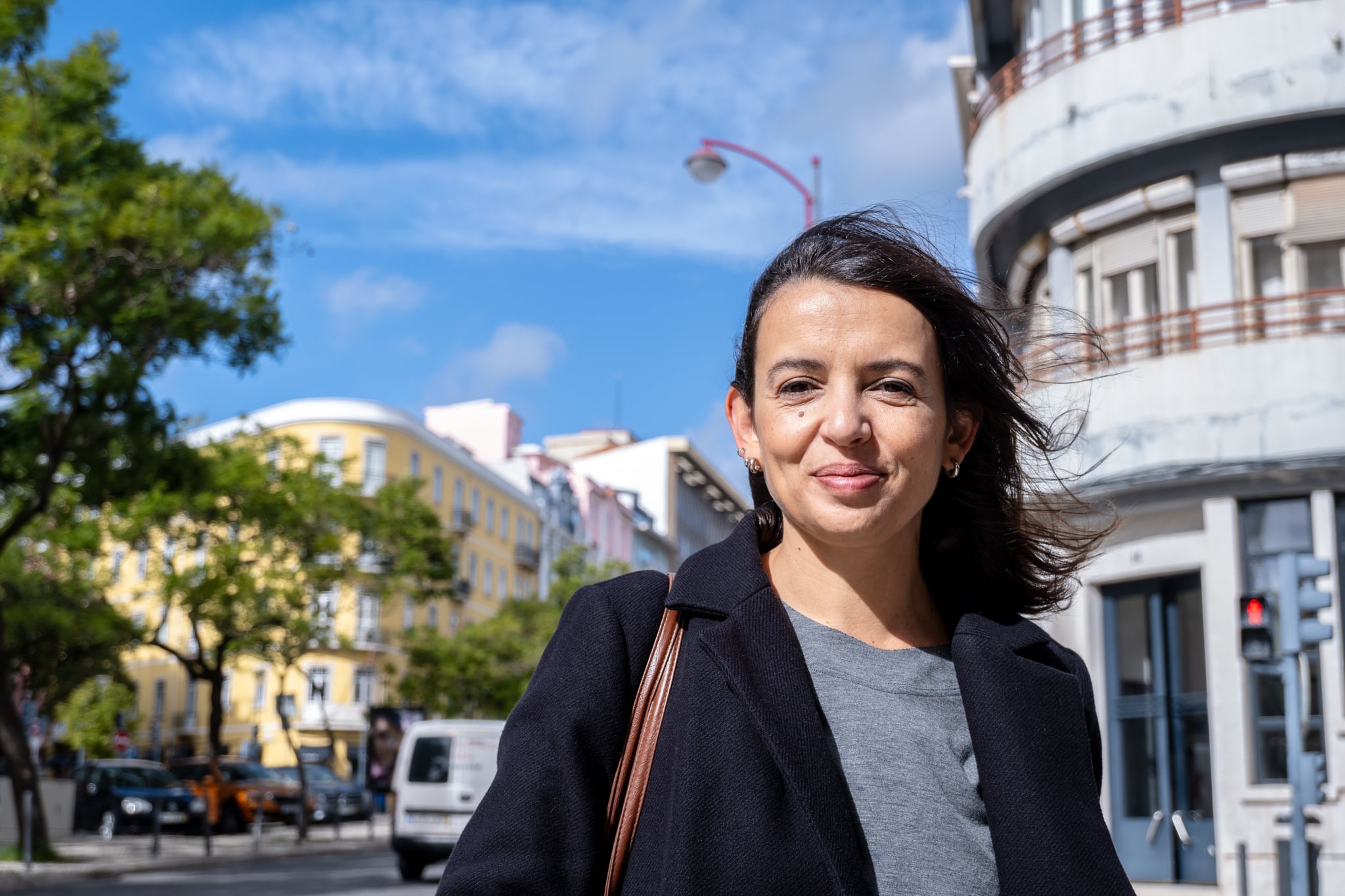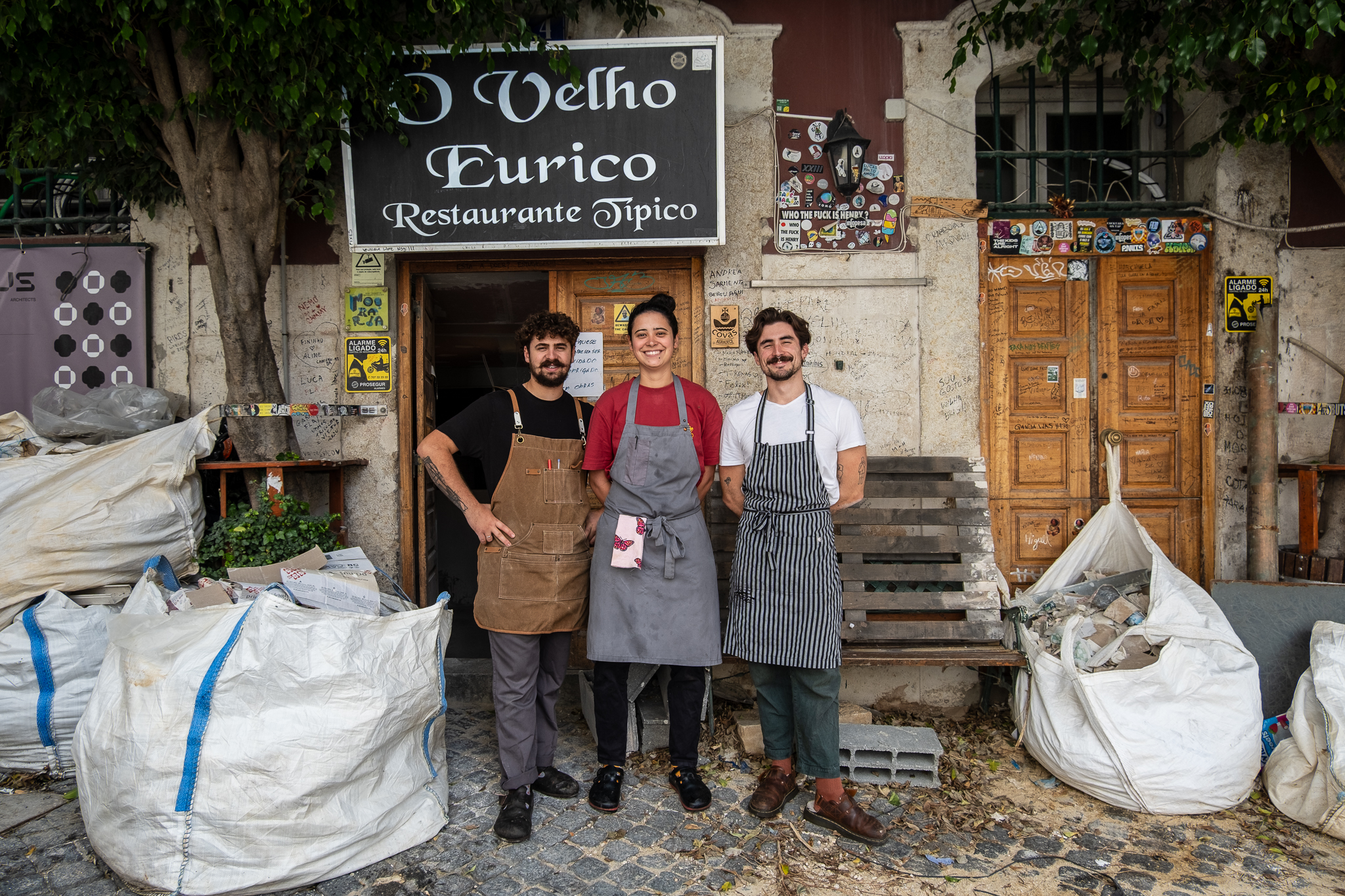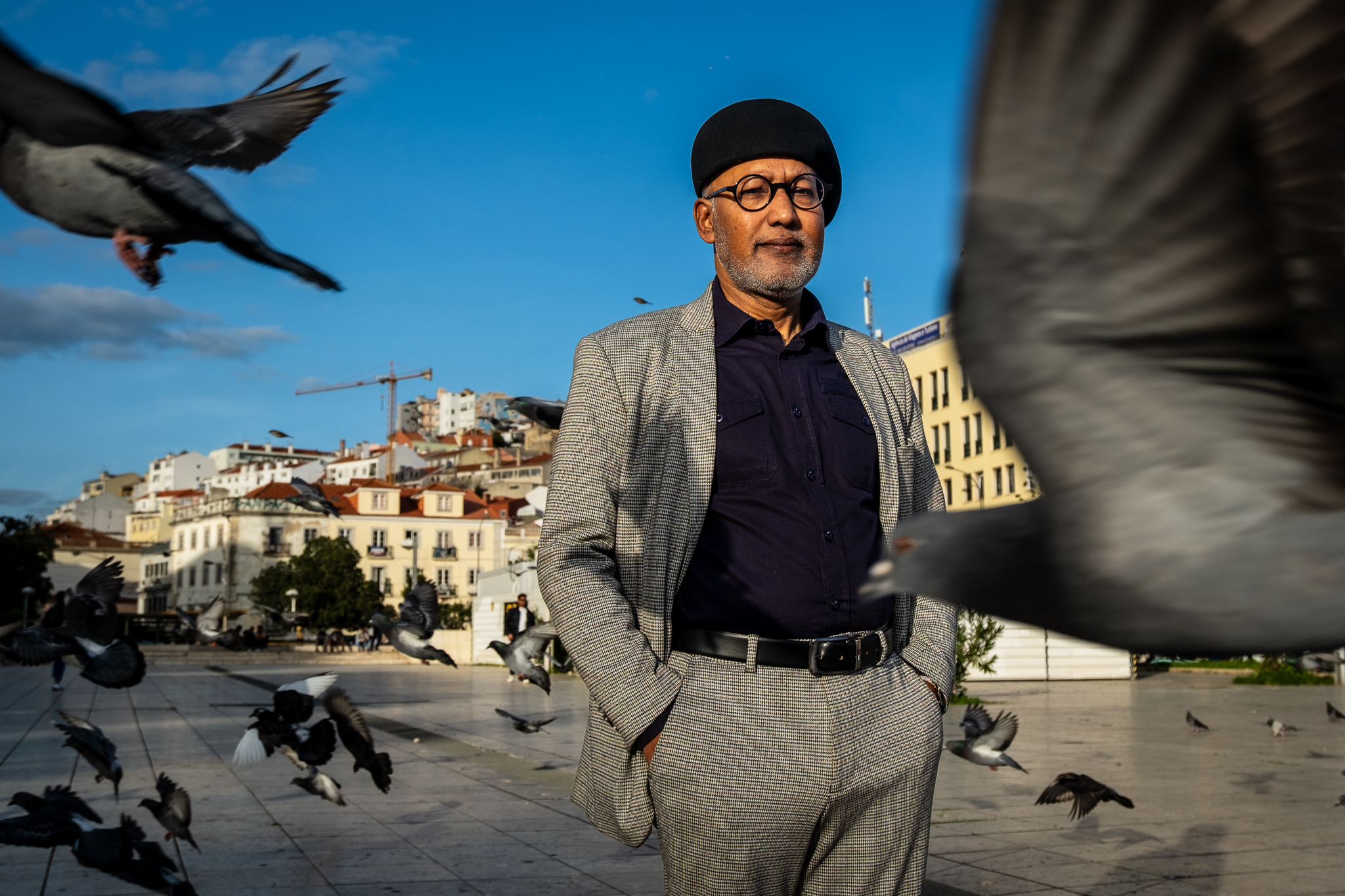Ana Drago has been studying the causes of the crisis in the housing sector. In this interview, we talked about investing in tourism as a way of economic recovery and attracting foreign capital, its effects on the Lisbon metropolitan area and potential ways out of this cycle.

The housing crisis in Portugal is increasingly a social consensus. Today, recognition of its existence cuts across practically the entire political spectrum. The debate has focused on the diagnosis of the problem, and of course, the potential solutions to this crisis.
We talked to Ana DragoShe holds a PhD in Urban Studies and is currently a researcher at the Observatory on Crises and Alternatives of the United Nations. Center for Social Studies (CES), who coordinated the book Lisbon's Second Crisis: A Fragile Metropolis.
The book is the work of several authors from the CES Observatory on Crises and Alternatives, who carry out a critical investigation and analysis of the economic and social development of the Lisbon metropolitan area (amL) over the last decade, which helps us to understand the causes of the current crisis in the housing sector. The conversation focused on tourism as a means of economic recovery and attracting foreign capital, its effects on amL - such as the rise in housing prices and the creation of generational conflicts within the middle class - and potential ways out of this cycle.
In recent decades, the debate on regional inequality in Portugal has focused mainly on the idea of a prosperous coastline and a deserted, less dynamic interior. Is combating this dichotomy one of the main aims of this project?
I wouldn't go so far as to say that it is, in other words, we have the perception that Portugal is marked by great heterogeneity; in fact, for such a small country, we have regions, development models, demographic grades, the location of different types of economy with great, great heterogeneity.
What struck us as interesting was to realize that, despite some recovery in the economy, in society, in employment, in incomes, in the cycle of the geringonça, there were a number of traces of significant transformation of a kind of development model for the country, of an engine of growth, in which its first area of application was probably the Lisbon metropolitan area. Because of its economic characteristics, obviously because of the concentration of capital, of politics, of people, of aggregation.
"But this idea that there was a development model or a growth strategy that bet significantly on a kind of export model that valued heritage assets and, at the same time, devalued work, this had a significant impact and probably had an even more important impact on the Lisbon metropolitan area than it did on the Algarve, which already had a specialization model that was very focused on tourism."
But this idea that there was a development model or a growth strategy that bet significantly on a kind of export model that valued heritage assets and, at the same time, devalued work, this had a significant impact and probably had an even more important impact on the Lisbon metropolitan area than it did on the Algarve, which already had a specialization model that was very much geared towards tourism.
In Lisbon, with the impact of the new tourist specialization and the significant growth in real estate purchases due to foreign demand, something changed. And so, when we wanted to look at what had happened during the Covid-19 pandemic, we started from the pandemic but, in reality, we needed to go back a little further. We needed to understand what had happened to the Portuguese and metropolitan economy over the last decade, during the application of the Troika program, and then understand these weaknesses during the time of Covid-19.
In 2022, still the year of the pandemic, traffic at Humberto Algarve airport fell by 70% due to health reasons. Even so, we had 9.3 million passengers, which is very close to 2004, the year we organized the Euro. How did we get here? In other words, a huge drop and we're at the same levels as 20 years ago.
I think what we had was a kind of circumstance and, at the same time, a political logic. I work more in the area of housing and real estate and, from a certain point onwards, we created a series of special regimes aimed at attracting international capital, foreign direct investment, very focused on this investment in real estate.
It's true that when we look at tourism, we see that it grew significantly after the great financial crisis and the great tide of austerity policies - starting in 2012/13 - in all the countries of the European Union. But Portugal has somehow emerged and increased its capacity to receive foreign demand and this shows that, unlike in the previous decade, at the beginning of the new century we have a significant commitment to tourism. And then there are a number of factors that come together very well: the government, at the time, realizes that this is a significant dimension with the potential to create new jobs, which had been lost with the financial crisis of 2008/ 2009, and then the years of the Troika, makes transformations in the sense of devaluing work and, at the same time, making available new jobs. stock housing for tourism. Everything is coming together to find a new growth strategy there.
"When we look at tourism, we see that it grew significantly after the great financial crisis and the great tide of austerity policies - starting in 2012/13 - in all the countries of the European Union. But Portugal has somehow emerged and increased its capacity to receive foreign demand."
This was already happening a lot in the Algarve. During the summer, the Algarve has around 10 times more people than it usually has during other quarters, but in the Lisbon metropolitan area, in the absence of another development model, the focus on tourism has created new jobs and new income for different segments of the population.
In other words, in Lisbon we've had segments of the middle class who have started putting their homes into tourist accommodation as a way of finding a new way of supplementing their income from work. Which, of course, is very unequal because it only serves those who are able to afford a house to put on the tourist rental market. These inequalities have been built up over the decade of growth, from 2014-2016, until the pandemic hit.
"In the Lisbon metropolitan area, in the absence of any other development model, the focus on tourism has created new jobs and new income for different segments of the population. Which, of course, is very unequal because it only serves those who are able to afford a house to put on the tourist rental market."
And even with the pandemic, in the years 2020/2021 there was a set of significant supports, which as João Ramos de Almeida works on in this summary, were aimed at companies and less at workers, but ended up sustaining work. Although it was the lowest paid and most precarious work in the tourism sector, which was punished the most and had a significant impact on the outskirts of the Lisbon metropolitan area, where people really struggled the most.
It shows weaknesses that already existed...
In fact, I think it shows a lot about the succession of crises we've been discussing. The entry into the Euro, the rules of the World Trade Organization, new competition [Asia and Eastern Europe], the great financial crisis of 2008, the impact of austerity policies. We have suffered a series of shocks to the Portuguese economy that have changed something significant not only in the national economy, but also in the metropolitan economy.
Lisbon used to be the Portuguese region that acted as the engine of growth, which pulled and dragged the rest of the economy along, and now it has a loss of productivity, income distribution, income capture, losses in wages and a downgrading of the workforce. All this is accumulating in the Lisbon metropolitan area.
"Lisbon used to be the Portuguese region that acted as the engine of growth, that pulled and dragged the rest of the economy, and now it has a loss of productivity, of income distribution, of income capture, it has losses in wages, disqualification of the workforce."

Tourism was used as a way of exporting capital and labor that had previously been allocated to what are called 'non-exporting' or non-tradable activities - such as construction, restaurants, real estate agents. It was a domestic activity that we were exporting from within the country.
It also contributed to the economic use of second homes, those homes which, as you said, were middle class, at a time when there were high interest rates, a financial crisis, a banking crisis. What's not to like about this transition?
One of the things I find interesting is the debate on tradable goods. In 2011, at the height of the Troika's arrival, we made a diagnosis of the Portuguese economy in which we said that, as a result of the external shocks that came at the turn of the century, it had been specializing in non-tradable sectors. And it was, in fact, the growth of the credit bubble in access to housing, the growth of employment in construction and real estate and, therefore, at the time there was a very important debate about the national economy in which it was necessary to find this export logic.
Portugal ended up doing a kind of trick: we exported what apparently doesn't go anywhere. There is an interesting debate that has even been held by a group of Italian authors on the crises of the industrial model in the countries of the South. They look at Italy, Spain, Greece and Portugal and discuss whether we really continue to look at housing as a transactional sector, because in fact a transnational housing investment market has been created.
"Portugal ended up doing a kind of trick: we exported what apparently doesn't go anywhere."
It's true that, for my part, and for the part of the people who wrote this book, we did little work on the issue of real estate funds, which in other European countries have a significant impact - this emergence in the post-crisis context of asset managers, who become the 'universal owners' of the economy. What we are arguing is that we are looking at a neoliberal model applied by the Troika and the idea that the public debt needed to be deleveraged. This led to the policy of austerity, but also to the logic of creating a private debt that affected families and access to housing. And so everything that was done was an idea of boosting the housing market in order to make it attractive to external demand and, on the other hand, the argument used was that it would lead Portuguese families towards a rental logic.
The liberalization of the rental housing market led, as we know, to evictions, to what were still clusters of working class people living in the city center being expelled to the outskirts, in order to boost this market, supposedly for renting in Portugal, but also to boost investment by foreigners. We know what these special regimes are, non-habitual residents, Gold visas, new forms of building intervention that have been made easier and therefore much cheaper and, obviously, the new urban rental regime.
And they have consequences.
When all of this was combined with the changes that were made specifically in the field of labor - the reform of labor legislation that made work cheaper - we had the intersection of two logics. In other words, it was possible to create a pool of new jobs in activities that are very unproductive and which, when we look at the income structures between the various economic activities, are those with the lowest salaries, the lowest qualifications and the highest levels of precariousness.
We have created a job market which, in fact, pulls the whole economy down. It's a new job with lower incomes, it's a new job with lower productivity, it's a new job that is extremely vulnerable to these demand cycles. In the context of a transnational recession, one of the first expenses people cut back on is tourist travel and, therefore, we weaken the entire fabric of the economy. The work of José Reis and José Maria Castro Caldas shows that this has an effect on the entire income structure and on the structure of value creation in the metropolitan area, but somehow it also affects other activities.
Because we have such a low income structure that pushes wages down, because we have weakened unions, weakened labor legislation, we have invested in this type of activity. There is another set of activities that require their professionals to seek higher incomes and go elsewhere. Therefore, we are exporting that more qualified workforce, or some workforce that is looking for other types of income at the beginning of their lives, and we are losing centrality and the ability to attract those same activities that are more productive and capable of creating more value. So we're having a cycle in which we're pulling the economy down. This happens a lot in the Lisbon metropolitan area, but I think it ends up having a knock-on effect on the national economy as a whole.
"We've created a pool of jobs that actually pulls the whole economy down. It's a new job with lower incomes, it's a new job with lower productivity, it's a new job that's extremely vulnerable to these demand cycles."
When it comes to housing, housing prices and the market have globalized. Portugal, in fact, is one of the countries with one of the lowest stocks of public housing in Europe and, finally, there seems to be a recognition that this is a problem. We now have a Ministry of Housing for the first time and the PRR mentions the construction of 26,000 homes over the next few years, with the 1st Right program. Coincidentally, 26,000 is more or less the number of Airbnb's in the Lisbon metropolitan area in 2022.
Are we trying to solve the housing problem right now just by trying to create a public park, decades too late? Isn't that a bit like trying to solve the problems of a post-war social democracy, where there were still capital controls, without understanding the particularities of the context of European integration and neoliberalism?
I think this has been an extremely interesting debate, at least among a number of researchers, in recent years. We started out with this perception that there was a housing crisis, in other words, that we were having prices that were clearly divergent from what the average income structure is in Portuguese society or in the Lisbon metropolitan area, and that we could therefore look at what has always been, shall we say, the forgotten child of social policies in Portugal: housing policy.
It's always strange to think why, with such a strong residents' movement during the Portuguese revolution - and in which the issue of housing was talked about as one of the main problems left by fascism - around 1977/1979, we no longer had the capacity for large-scale housing production. The reading I made, in a previous work, is that it was easier in Portuguese society, during the period of democratic institutionalization, to create new public networks on health or education launched in the territory, but which were not going to touch the private ownership of land, which was what happened in housing; therefore, it was easier to structure these social rights than the others, which were going to require a land policy, expropriation, investment and, therefore, the Portuguese regime, to some extent, retreated.
"It was easier in Portuguese society during the period of democratic institutionalization to create new public networks for health or education that were launched on the territory, but which weren't going to affect the private ownership of land, which is what happened with housing; therefore, it was easier to structure these social rights than the others, which were going to require a land policy, expropriation and investment."
We had a big growth cycle in informal construction there until the early 1990s and then, when we entered the European Monetary System, the drop in interest rates allowed that flow of cheap credit that stimulated a certain growth model, which was about property construction. In fact, we had that link between the financial system, the construction companies and the owners of the land that structured this housing model. Ana Santos, João Rodrigues and Nuno Teles have done a lot of work on the financialization of Portuguese capitalism, focusing on this structuring between the financial system, families, construction and access to land.
Then came the crisis and, at the time, we began to discuss, in 2015/2016, the realization that prices did not correspond to average incomes and that we could finally bet on a public policy of structuring a public housing stock, looking at what had been the post-war experience in most of Northern Europe and moving in that direction. The IHRU [Institute of Housing and Urban Rehabilitation] began, from the first discussion in 2017, the new generation of housing policies, and the goal was to reach 5% of publicly supported housing.
Public support is always something we want to understand what it means, because there would be 170,000 to 180,000 new homes built, which is something significant and in which there is a lot of investment, planning. I think that here in the 5% target we have to understand what the Socialist Party government itself thinks the construction of new homes is, and what other forms of public support with access to housing are.
The tax benefit schemes that have been created, particularly for private landlords: that thing whereby if you rent your house at less than 20% of the price of the area of your parish, you have a set of tax benefits, which is called the Affordable Rental Program. In fact, with so much demand for housing that has existed so far, since it was created in 2019, 900 contracts have been made - it's a drop in the bucket for what is needed. In 2018, the IHRU made a diagnosis based on surveys of local councils, which showed that there were 26,000 families with serious housing shortages and, therefore, this was aimed not so much at a middle class that has difficulties, or that has a big impact on its income from housing costs, but at people who are in a situation of serious housing shortage.
We realized very quickly that this 26,000 would not be enough. This program that was launched, the 1st Law programThe PRR's participation in 100% is an initial response. It probably won't answer everything and we have the problem of time: we have to use the funds until 2026, and construction is always an extremely lengthy process. Because you have to make local housing strategies, you have to understand the needs, have access to land, make architectural tenders, make construction tenders, all of which are contested and, therefore, all of this will take a long time to respond to.
Time is running out...
The problem is that we have middle class segments that are particularly vocal in Portuguese society, who also have immense difficulties in accessing decent and reasonable housing, given their income. And the 1st Right doesn't respond to this. It's true that the PRR has 600 million saved for the Affordable Rent Program, possibly some for construction, and other types of support that may arise, but what we're beginning to realize is that the structure of private property is so significant in the public housing stock, and the type of demand to which the Portuguese housing market is subjected puts pressure on it so blatantly (such external demand), that it's not enough to build again and, apparently, it's not enough to give tax benefits to landlords either. Let's experiment with these solutions.
"The problem is that we have middle class segments that are particularly vocal in Portuguese society, who also have immense difficulties in accessing decent and reasonable housing, given their income. And the 1st Right doesn't respond to this."
The debate that has arisen in Europe, and what was the movement in Berlin to structure a referendum on rent regulation itself - in Berlin they went even further, about expropriating the big landlords, the big companies - is an absolutely fundamental debate. We won't be able to have an instrument for intervening in the housing market that makes it suitable for the people who actually live and work in the city, who animate the metropolitan economy, if we don't lower the rents that are available today. And so we have to deal with a matter that is extremely complex from a political point of view in Portuguese society, which is that we have to start regulating rents. I don't see much of an alternative to this.
I have to say that the current Minister of Finance, when he was still Mayor of Lisbon, said very clearly: if we are not able to lower rents in the market for a social offer, a private offer, we will have to regulate rents. I think we have to move in that direction.
"We won't be able to have an instrument to intervene in the housing market that makes it suitable for the people who actually live and work in the city, who animate the metropolitan economy, if we don't lower the rents that are available today. And so we have to deal with a matter that is extremely complex from a political point of view in Portuguese society, which is that we have to start regulating rents."
For the first time in Portugal, I think, but perhaps also in other European countries, we have something that hasn't happened before. We've had a process of building middle-class identities closely linked to home ownership, which was a kind of conquest: people conquered it, arrived in the city, got a job, bought their house, and feel that it's a security in relation to the very provision of well-being by the state. They don't know what's going to happen to their pensions and they think it's a legacy they're going to leave to their children, so it's very much structured around the idea of democratic conquest.
And for the first time we have a conflict between the middle classes, with a very strong generational dimension, in which they have different interests about housing; they have a conflict. There are new generations of middle classes who believe that we need to intervene strongly in the housing market, regulate tourist accommodation, not allow this type of external demand that responds to speculation, regulate rents, have new types of offers.
And there is a part of the middle class that is benefiting from the boom and speculation, who have sold their house for a price they had never really thought of selling it for, or who are monetizing it, whether in a normal housing lease or on Airbnb, if they can manage it. And in another text, not in this volume, I argue here that the Socialist Party government is hesitant about which middle class sector to support. Now, obviously, there is a perception here on the part of the finances and on the part of certain sectors of the government that think that first tourism creates jobs, then tourism brings in foreign investment and, therefore, you have to keep these logics working. I often say that the main opposition to the new Minister for Housing is the Minister for Finance. That's where the central problem lies in the new strategy for responding to the housing crisis.
"For the first time in Portugal, I think, but perhaps also in other European countries, we have something that hasn't happened before. We've had a process of building middle-class identities very closely linked to home ownership, which was a kind of conquest: people conquered it, arrived in the city, got a job, bought their house, and feel that it's a security in relation to the very provision of welfare by the state. They don't know what's going to happen to their pensions and they think it's a legacy they're going to leave their children, so it's very much structured around the idea of democratic conquest."

Recently, countries like Canada and New Zealand have adopted policies to restrict foreign investors from buying. Do you see this as a mechanism that Portugal, especially within the framework of the European Union, should try to exploit?
This has been another debate we've been having, amid uncertainty, because Portugal has actually lost a certain component of its sovereignty in the process of European integration. Is it possible for a country to restrict purchases by non-nationals who come from within the European Union? Or forms of investment by real estate funds that are from the European Union? It's a very complicated debate.
And I think we have to explore these legal possibilities well, because it's extraordinary that Lisbon today has an extremely interesting cosmopolitan dynamic - we have a number of nationalities living in Lisbon, and that's very good - but there can't be this kind of inequality. There are a number of foreigners who invest in real estate in Portugal, who don't live in Portugal, and who do so strictly to earn extra income. This creates an extraction of income from the work of those who live there, from the average national income, which is absolutely unacceptable.
We have to find some way of regulating this system. Obviously it's a challenge, I think that at the moment, with regard to the possibility of preventing foreigners from buying, we have to explore what the jurisdiction of the European Union is. I think it's difficult, with regard to the housing crisis, to say that we're going to leave the European Union. I don't think that's a sustainable political strategy at the moment in Portugal, but I think we have to find mechanisms like other cities that have also tried to find other solutions to their housing difficulties. Portugal is an extreme case, I believe, because when we look at international comparisons we see that in that index between price and income, in the OECD statistics, Portugal surpasses Canada, and Canada seems almost an unbelievable model of what has happened.
We have much lower incomes than the prices being charged on the housing market today and this can only be explained by external demand, there is no other explanation.
"We have much lower incomes than the prices being charged on the housing market today and this can only be explained by external demand, there is no other explanation."
A topic not mentioned so much in the book has to do with climate change and the goals of achieving carbon neutrality in the coming decades. Do you consider this model, based on tourism, to be particularly vulnerable and contradictory to these goals?
I think so. It was a debate we had on the question of the location of the airport. I have the perception that it is difficult not to defend the creation of a new airport in Lisbon, because we are a peripheral area of Europe and, obviously, Lisbon airport is completely swamped with demand. Now it's clear that the model of betting on tourism is a model of downgrading the Portuguese economy. In the long term, with the changes that have been discussed in the European framework, I believe that our idea that it is possible to bring tourist demand from the north and center of Europe towards such a peripheral region in the future, with the same intensity that has been practiced over the last decade, is unaffordable. Now, all this needs planning.
I must confess: we in January we held a two-day debate on planning at the Calouste Gulbenkian FoundationThis is the first time that we have tried to tackle the issue of the return of economic planning, land use planning, public administration, in other words, the structuring of development models and long-term political choices, in which the dimension of climate change has been transversal to all areas. Therefore, what seems fundamental to us is that when we look at what has been the stagnation of wage growth, the de-skilling of the Portuguese economy, and when we look at the bets that have been made in recent years, made and maintained over the last few years, we need to have strategic thinking that takes into account the profound transformation that we are going to have in our forms of mobility, energy consumption, value production models.
I think that this debate has yet to take place in Portuguese society, but it is certainly one of the biggest flags that tells us that this model of trying to maintain an economic growth strategy based on external tourist demand is unsustainable.
This interview was originally published in the Cities magazine that Shifter edited in partnership with LPP. The physical version of this magazine is sold out. A new issue is now on sale, this time dedicated to Artificial Intelligence.












